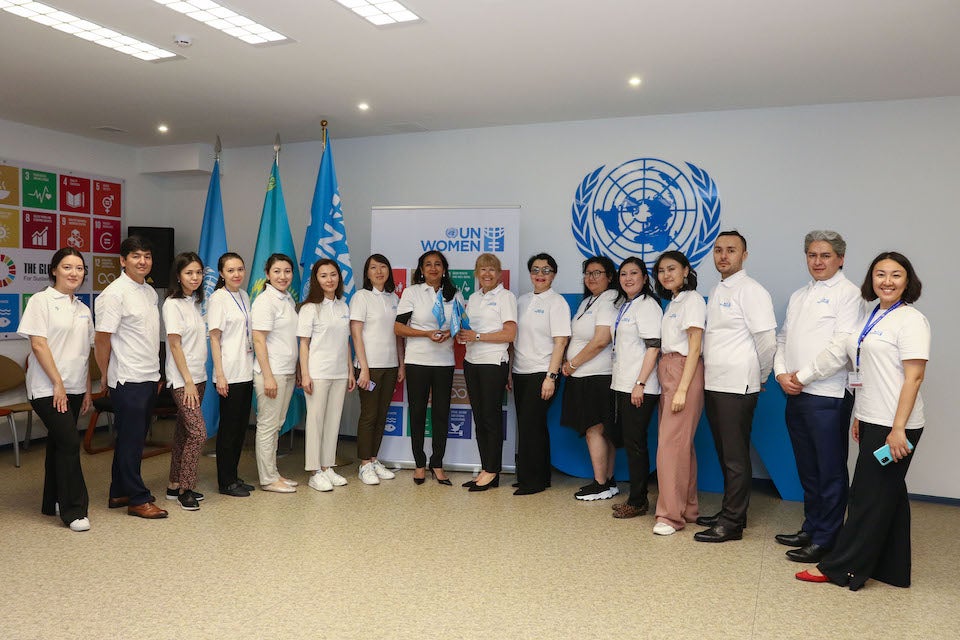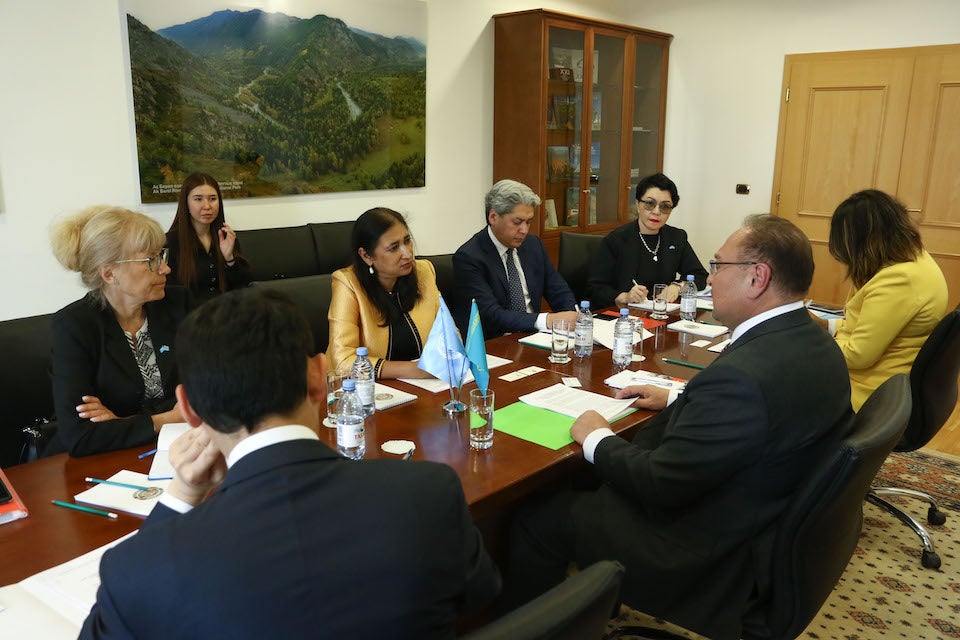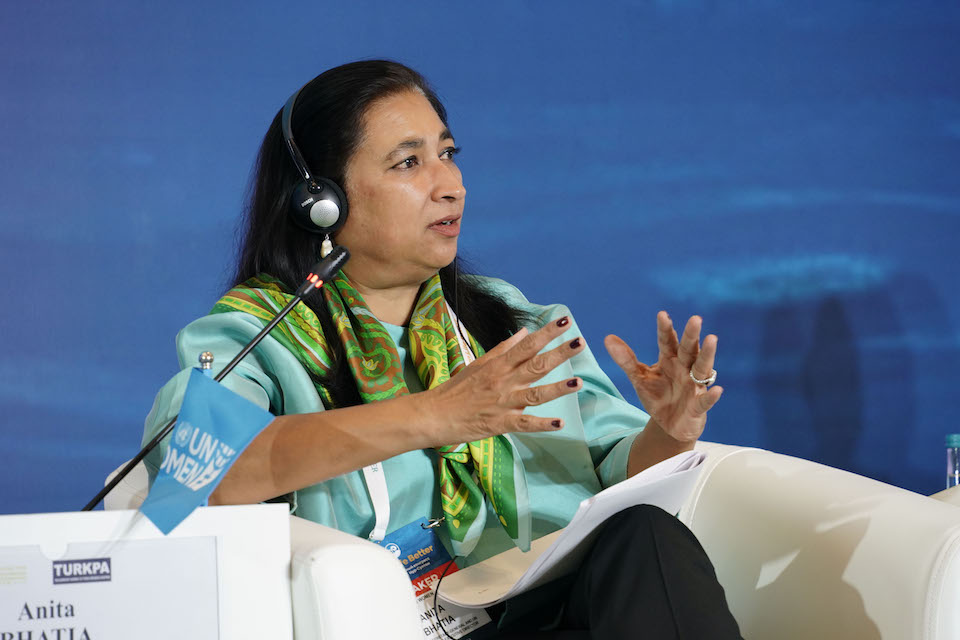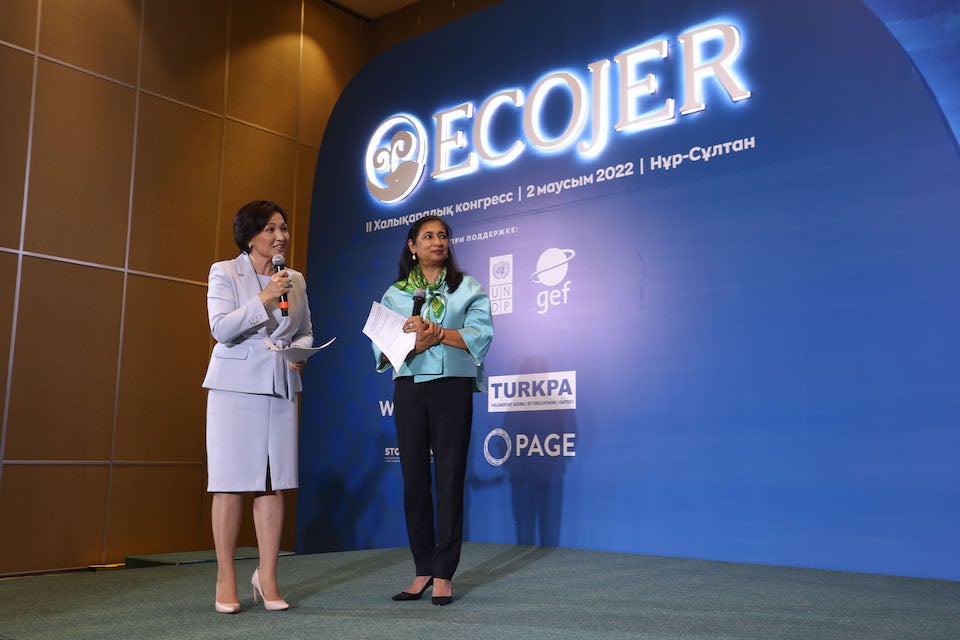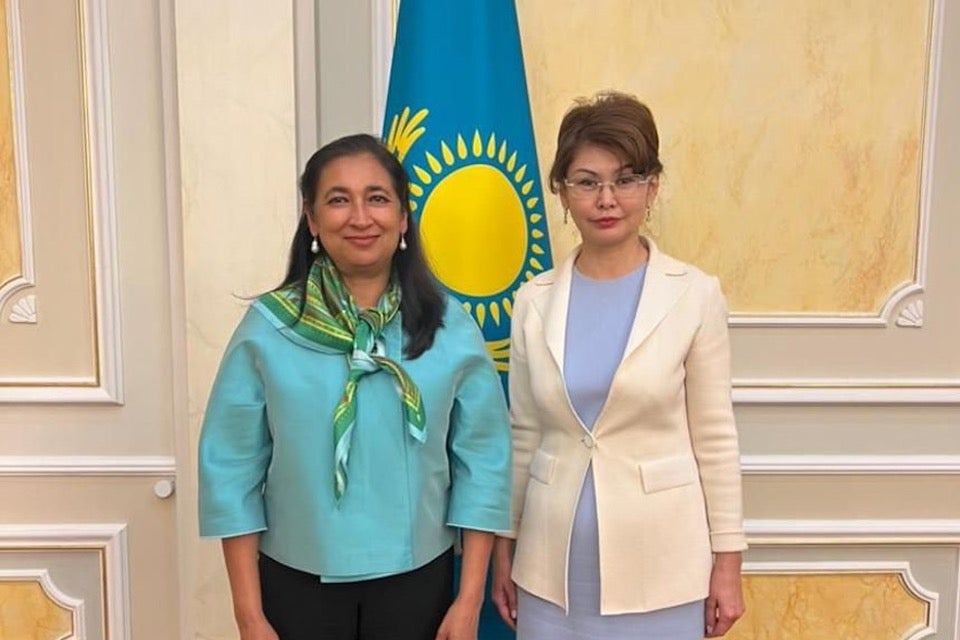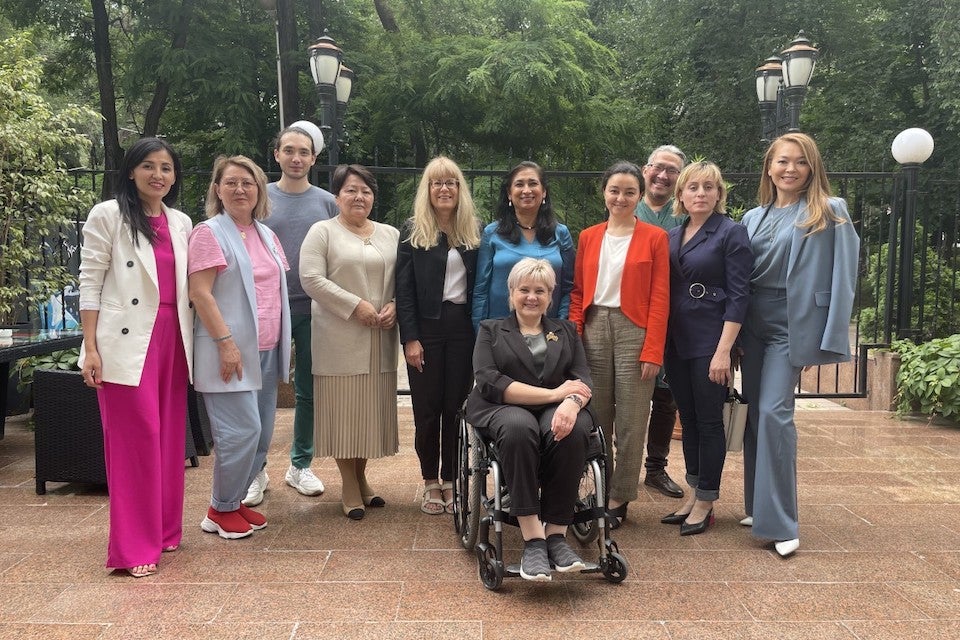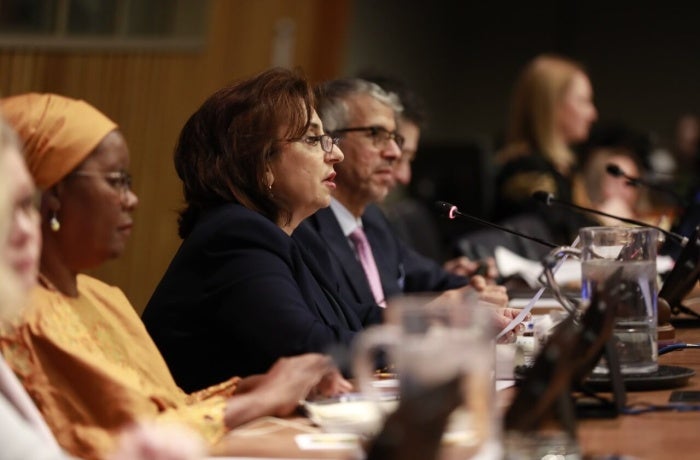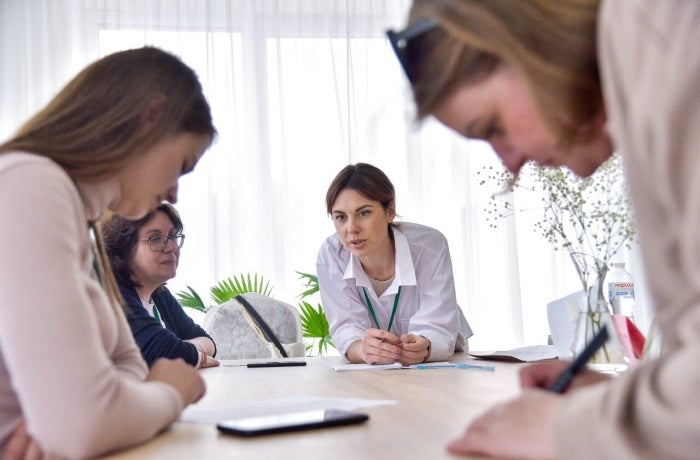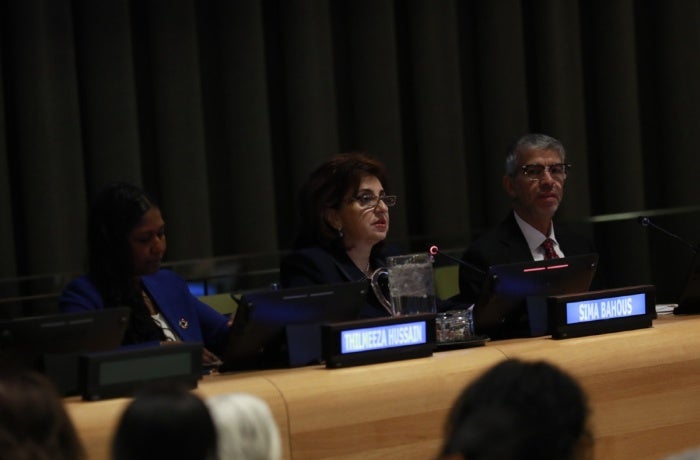“The post-COVID world must not just build back better – it must build forward differently”, says UN Women Deputy Executive Director and Assistant Secretary-General Anita Bhatia on her first official visit to Kazakhstan
On 1–3 June, Anita Bhatia, Assistant Secretary-General and UN Women Deputy Executive Director, visited Kazakhstan to participate in the ECOJER international congress at the invitation of the Government of Kazakhstan and held meetings with representatives of the civil and financial sectors in Almaty.
Ms. Bhatia launched her mission by meeting with UN Women’s country team to provide a briefing on corporate strategic priorities in the context of COVID-19 recovery and the geo-political situation in the region. Active in Kazakhstan since 1999, UN Women has worked in partnership with the government, civil society and other institutions to ensure equality of rights and opportunities for women and girls. With UN Women’s assistance, the list of prohibited professions for women was abolished last year, and the country announced its commitments to combating gender-based violence and ensuring economic justice and rights, joining the global Generation Equality Forum’s two Action Coalitions. Kazakhstan also adopted the first National Action Plan 1325 to implement the UN Security Council Resolutions on Women, Peace and Security.
The Deputy Executive Director also met with Kazakhstan's Commissioner for Human Rights, Elvira Azimova; Member of Parliament, Head of International Affairs, Defence and Security Committee Aigul Kuspan; and Deputy Head of the National Commission for Women Affairs, Family and Demographic Policy under the President of Kazakhstan Lazzat Ramazanova to discuss strategic partnership priorities and strengthening cooperation on gender equality and the empowerment of women. Gender equality and women’s empowerment were also raised during the meeting with the First Deputy Minister of Foreign Affairs of the Republic of Kazakhstan, Akan Rahmetullin. Ms. Bhatia thanked Kazakhstan’s government for its regional leadership in implementing the best international practices in the field of advancing gender equality as well as combating gender-based violence.
Kazakhstan attaches great importance to the gender agenda in the context of the country's commitments to the Beijing Declaration and Platform for Action and the Sustainable Development Goals. The country aims to improve the mechanisms for promoting women’s rights and women’s empowerment, which Ms. Bhatia mentioned and thanked the government for funding. Currently, Kazakhstan’s government is the only country in the region contributing funds towards the programmatic work of UN Women and the Spotlight Initiative Regional Programme for Central Asia and Afghanistan.
As part of the second international ECOJER congress, Ms. Bhatia participated in an expert dialogue platform on ecological issues and sustainable development where she emphasized the unequal labour force participation that persists for women across Europe and Central Asia. Over 15 per cent of women have lost their jobs and another 40 per cent have had to reduce their working hours due to COVID-19 outcomes.
"In 2020, 45 million women worldwide left the labour market completely. According to experts, if women participated in the economy on an equal footing, then GDP growth in Eastern Europe and Central Asia could be 23 per cent or $ 1.1 trillion. UN Women's sustainable development vision includes supporting women's livelihoods, eliminating violence against women, and having women in key decision-making positions. The post-COVID world must not just build back better – it must build forward differently," said Ms. Bhatia.
Her speech outlined the importance as well of strengthening co-operation on environmental and climate security in Central Asia. This includes developing gender-responsive regional approaches addressing the disproportionate impact of climate change on women and girls.
Ms. Bhatia also participated in a ceremony for private sector companies joining the Kazakhstan Closing the Gender Gap Accelerator, implemented in collaboration with the World Economic Forum. This initiative aims to create better opportunities for women, supporting them to attain leadership positions and to increase their participation in the labour force by reskilling women for re-employment in high growth sectors.
The Deputy Executive Director also met with the recently appointed Head of the National Commission for Women, Family and Demographic Policy of Kazakhstan, which implements a number of gender equality projects with UN Women’s support. They discussed the opportunities for creating a Centre of Excellence for Gender Equality in Kazakhstan to help boost the expertise, experience and resources needed in the region to progress towards gender equality.
On the last day of her visit, Ms. Bhatia held meetings with private businesses and civil society activists. She discussed with activists and UN Women experts the main challenges they face during the post-pandemic period and results achieved despite those challenges. Ms. Bhatia thanked them for their important contribution to addressing sexual and gender-based violence in the region and encouraged them to strengthen their capacity to effectively implement their missions.
“There are debates on the criminalization of domestic violence in Kazakhstan even though it was strongly recommended by CEDAW in 2019. There is strong support of the President of Kazakhstan to eliminate violence against women and children in Kazakhstani society. UN Women will continue to support national partners in making relevant changes in legislation and ensure its proper implementation, in order to protect women and girls in Kazakhstan,” she said during the meeting with CSOs.







